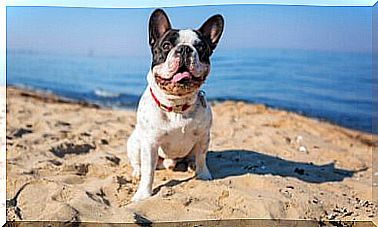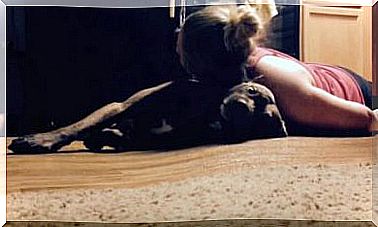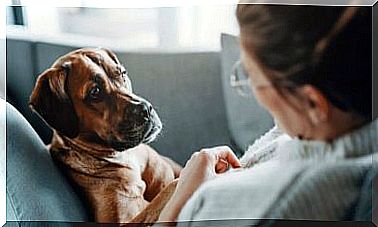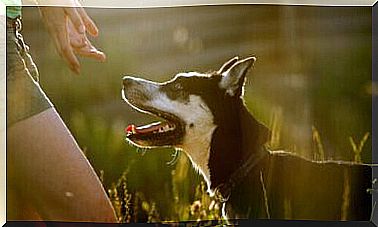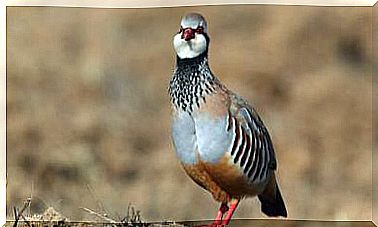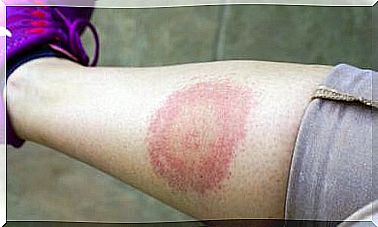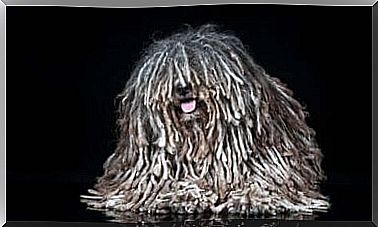Obesity In Rabbits: Symptoms And Causes
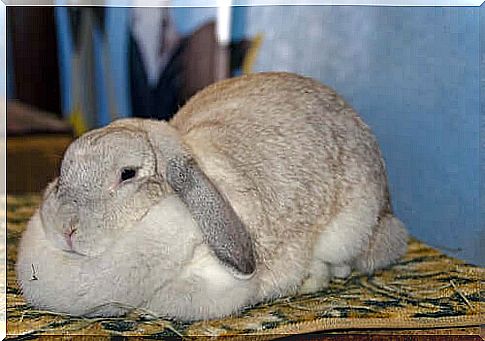
Obesity in rabbits can cause more serious illness than you might think. As in humans, dogs, cats and even birds, being overweight plays an important role in health.
Obesity is considered a problem for the well-being of pets and, as such, must be treated.
What causes obesity in rabbits?
Overeating is often the reason for obesity in rabbits, but this factor alone may not affect a very active rabbit, as exercise can keep the weight under control.
Inactivity
If a rabbit burns less calories than it consumes, it ends up gaining weight. Since many pet rabbits are cooped up for most of their lives, obesity is a common problem.
Sugary goodies
There is a commercial phenomenon when it comes to acquiring and supplying rabbit treats. Many pet owners fall for advertising gimmicks and want to give their rabbits what pet stores have to offer.
How do you know if your rabbit is obese?
Being obese means that your rabbit has more body fat than is healthy for its body size. Each species of rabbit has a different set of patterns that indicate the normal size and weight of that particular breed.
These rules are not rigid, but should be used as a guide to help judge whether or not your rabbit is the proper weight.
There is a scale that scores the rabbit’s body condition. It’s a help when it comes to monitoring your rabbit’s weight. Most body condition scales range from one to five. Three would be the ideal condition.
Something proposed by this type of scale is, for example, to feel the ribs. If you can feel them, but they are not easily seen, the weight will generally be rated three. If the ribs stick out too much, the weight is down.
If you can’t feel your rabbit’s ribs, or if you have to work hard to feel them, he is overweight. The veterinarian should help you confirm this diagnosis as it depends on the animal’s health.
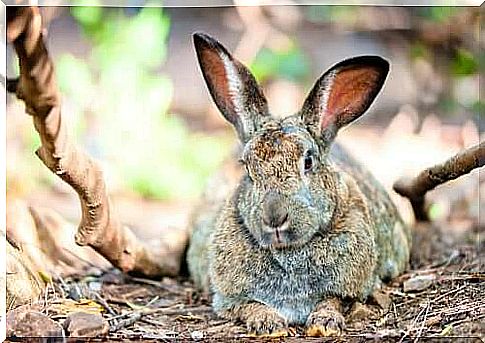
What are the consequences of obesity in rabbits?
Obesity in rabbits is associated with suffering from many diseases. Among them are myiasis, pododermatitis, pregnancy toxemia and even paralytic ileus (or gastrointestinal stasis), among others.
myiasis
It is also known as worm infestation. As overweight rabbits cannot be cleaned properly, they are more likely to have dirty areas on their bodies that attract flies. One of the most common areas is the rectum and genital region.
Flies lay their eggs, which become worms. If you don’t regularly check and clean your rabbit, they can easily go unnoticed. Secondary infections, irreparable wounds and even internal damage can be caused by flyworms.
Pododermatitis
This condition usually occurs due to a sedentary lifestyle or because the obese state in the rabbit causes too much pressure on the feet.
Also, rough and impure surfaces are contributing factors to this inflammation. Pododermatitis lesions are painful and can be difficult to treat and clean. It is necessary to be aware of the first signs, which usually include lameness.
Gastrointestinal stasis (paralytic ileus)
This is the most common problem in rabbits as pets due to its many causes.
Obesity alone cannot cause a rabbit to stop eating and develop paralytic ileus, but due to all the other problems that can be associated with obesity, it is definitely a high risk factor.
What to do to prevent and reverse obesity in rabbits?
Obviously, the easiest thing to do to help prevent obesity in rabbits is to feed them well. It is necessary to choose the right type and amount of food and provide a good amount of exercise to keep the rabbit at its ideal weight.
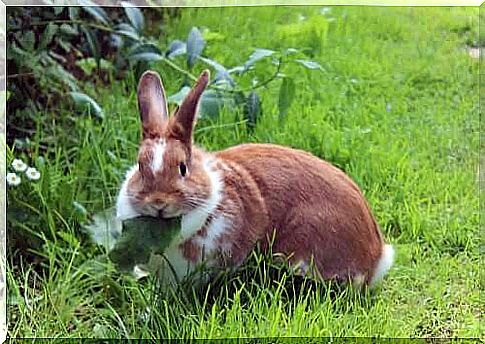
You need to keep in mind that hay is vital to your rabbit’s health and should be a main part of their diet. Human foods and treats are often the reasons behind weight gain; therefore, they should always be limited to adult rabbits.
It is recommended to avoid sugary or fatty foods such as sunflower seeds and many types of cereals. Instead, save a strawberry or carrot as a special gift for your rabbit. For him, it’s as good a gift as a sugar cube.
Exercise, an ally to fight obesity in rabbits
You should let your rabbit run and exercise. Ideally, a rabbit should never be caged, but should have a rabbit-proof ‘room’ or a large area to live and explore.
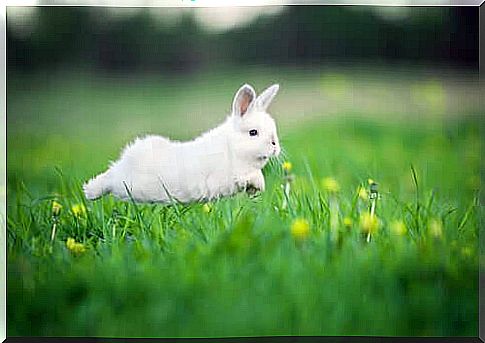
This will not only keep your mind stimulated, it will also keep you thin and happy. If you have no choice but to tether your rabbit, you can still give it time to exercise.
Rabbit collars are often used to ensure that the animal does not enter a dangerous area. They should have at least three hours to play and exercise if they are often stuck during the day.
Remember that rabbits run several miles a day in the wild. So the least we can do is let them play in our homes for a few hours.
